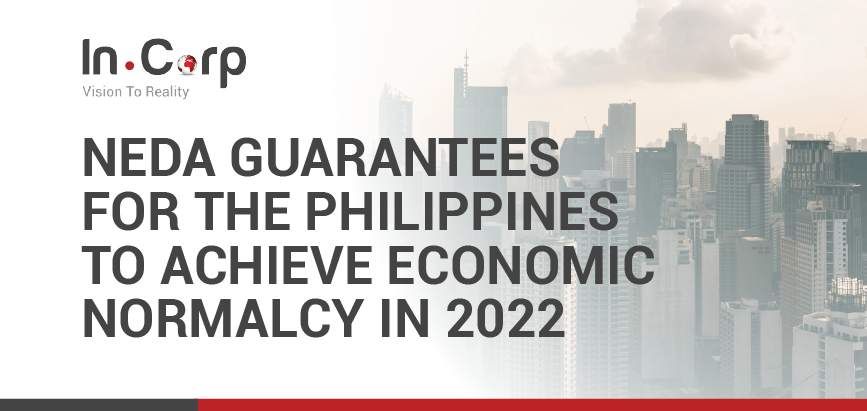
NEDA Guarantees for the Philippines to Achieve Economic Normalcy in 2022
The National Economic and Development Authority (NEDA) Chief Economic Manager Karl Kendrick Chua stated that with the approaching return of normalcy this year, the next administration will have to focus on making plans to repay the debts accumulated throughout the COVID-19 pandemic.
Finance Secretary Carlos Dominguez III noted in an interview with CNBC, “We are very confident that 2022 will be the year that we will return to normalcy. Despite the surge in infections due to the Omicron in early January, we have succeeded in limiting severe infections and deaths.”
Dominguez mentioned that the COVID-19 infections have dropped to 2,000 levels this February, from the high rate of 39,000 in the middle of last month. Furthermore, out of 223 million doses of vaccines secured by the Philippines, 132 million shots were administered as of mid-February.
The continued mass vaccination is anticipated to hasten the reopening of more productive economic sectors that will help to achieve 7-9% gross domestic product (GDP) growth this year.
However, the bulk purchases of COVID-19 vaccines from international suppliers was one of the reasons for the increasing debt. In all, the Philippines has borrowed $2 billion from three multilateral banks last year. The breakdown would be $1.2 billion for vaccines and $800 million for booster and pediatric shots.
As of the end of 2021, the Philippines’ public debt-to-gross domestic product (GDP) ratio ascends to a 16-year high of 60.5%, exceeding the 60% threshold deemed as manageable for growing markets.
Dominguez cited, “We have to realize that the spike in our debt-to-GDP ratio is well-within affordability, and well-within our rating peers’ experiences.” or other economies which have the same investment-grade credit ratings as the Philippines.
In addition, Dominguez noted that the Department of Finance (DOF) is now “putting the finishing touches on the fiscal consolidation proposal that will be pitched in the next administration in order to raise more revenues to repay the bigger debt.
Although, Dominguez did not mention which new or higher taxes may be included yet.
The proposal will be discussed with the presidential aspirants running for May 9 elections. Dominguez stated, “We are ready to brief all presidential candidates and their economic teams, and we will present to them ideas on how to handle the increasing debt.”
Dominguez looks forward to a smooth transition to the next administration just like the prior turnovers from one president to another.
In a statement from BSP, Dominguez quoted mentioning that recent reforms and continuity in the bureaucracy will help the next administration to maintain solid macro fundamentals.
“The Congress’ recent passage of game-changing economic reforms — namely the amendments to the Foreign Investments Act, Retail Trade Liberalization Act and Public Service Act, which are meant to further open the economy to foreign investment — is a strong indication that the economic reform momentum will continue beyond the current administration. These reforms will help the Philippines return soon enough to its rapid economic growth and support faster fiscal consolidation.”
Dominguez added, “The Philippines’ long track record of pursuing structural reforms through successive political administrations has led to the country’s solid macroeconomic fundamentals, which, in turn, have led to significant development and financial inclusion outcomes.”
He further stated,, “The deep bench of technocrats who have helped steer economic policies will be staying beyond June 2022 and would help ensure the continued pursuit of structural reforms. These, in turn, will help the Philippines sail through its next stage of economic development as we expect the Philippines to transition from lower-middle-income to upper-middle-income status this year.”
Once the Philippines turn into an upper-middle-income economy, it will lose access to concessional interest rates being slapped on official development assistance (ODA) loans extended by both bilateral and multilateral lenders.

